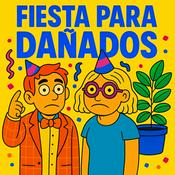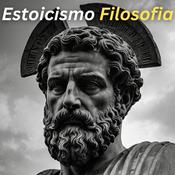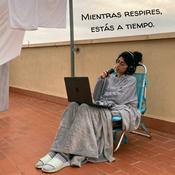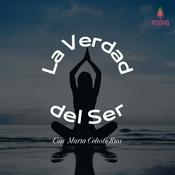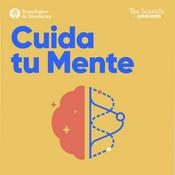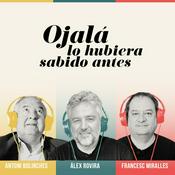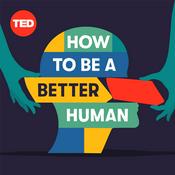42 episodios
- In this episode, I introduce the Four Karmas—pacifying, enriching, magnetizing, and destroying—as practical actions for meeting chaos, conflict, and confusion without losing clarity or heart. In this Buddhist framework, karma means action, not fate. These are not strategies for getting your way, but ways to protect the mind, deepen compassion, and interrupt ignorance in real time.
I also explore the “ Māras ,” the obstacles that can distort each karma, and why wisdom sometimes needs to be gentle—and sometimes fierce. Drawing on the story of the Buddha under the Bodhi tree, I reflect on how distraction, shame, and aggression show up in our own lives, and how these four actions help us meet them skillfully.
Highlights
Karma as action, not reward or punishment
The Four Karmas as tools for clarity and compassion
How wisdom can be peaceful or wrathful
Knowing when to add, wait, attract, or let go
The Four Karmas (Briefly)
Pacifying: Settling down to see clearly, often through deep listening rather than fixing.
Obstacle: Spiritual bypassing.
Enriching: Adding what genuinely increases vitality and connection, based on what’s actually needed.
Obstacle: Accumulating without applying.
Magnetizing: Receptivity—allowing insight, creativity, and help to come toward you.
Obstacle: Emotional reactivity that obscures perception.
Destroying: Ending or pruning what no longer serves, without aggression.
Obstacle: Total shutdown instead of skillful cutting.
Closing Music
I end the episode with “Waloyo Yamoni (We Overcome the Wind)” by Christopher Tin—a piece that feels vast, direct, and deeply human.
If you found this episode meaningful, please share it or leave a review. It truly helps.
During this episode, I mentioned my upcoming retreat on meditation and writing, Fearless Creativity. You can learn more here.
Watch this episode on video
If you’d like to watch the podcast, the video version is here.
Ask me a question
You can send your questions via Instagram DM or through our form — I’d love to include them in future episodes.
Learn to Teach Meditation
The Open Heart Project Meditation Teacher Training returns this January.
We begin January 17th, 2026.
I teach every session. It’s intimate, rigorous, supportive—and it’s for anyone
If you enjoyed this episode:
Please rate, review, and share it with a friend who’s curious about mindfulness, spiritual commitment, or the Buddhist path.
For more on Buddhist teachings and how our humanity isn’t necessarily in our way, sign up for my free weekly newsletter or join the Open Heart Project sangha for more connection with community and with me.
If this podcast has been meaningful to you, it would be great if you would subscribe, give it a five star rating and share it with a friend. To join or learn more about The Open Heart Project please visit openheartproject.com.
Thoughts? Email us at [email protected]
Produced by Citizens of Sound
Music by: Derek O'Brien
©Open Heart Project - As we move into a new year, how do we deepen our understanding: of ourselves, our relationships, and our spiritual practice? In this episode, we explore the three essential steps of learning in the Buddhist tradition: hearing, contemplating, and meditating.
Highlights:
Why the first step, hearing, is more than listening: it’s opening to what’s being offered without judgment or projection.
How contemplating allows teachings to be tested, weighed, and integrated through experience rather than accepted blindly.
What it means to meditate in the deepest sense: living a teaching, letting it shape your being.
A story from a meditation student learning to let go of constant vigilance and just breathe.
Reflections on Progressive Stages of Meditation on Emptiness and integrating wisdom into daily life.
If you want to learn something deeply—whether meditation, spiritual practice, or life itself—these three steps are your path.
Podcast After Party – Song Feature:
We celebrate music as a form of transmission and joy with a performance by the legendary Egyptian singer Umm Kulthum (also spelled Oum Kalsoum, Om Kalsoum, Umm Kalsoum, Om Kulthoum, Oum Kulthoum, and Umm Kolthoum). Her song Lelat Hob (Night of Love) showcases the power of live music, devotion, and cultural adoration.
For the full version of this song, you can listen here.
Watch this episode on video
If you’d like to watch the podcast, the video version is here.
Ask me a question
You can send your questions via Instagram DM or through our form — I’d love to include them in future episodes.
Learn to Teach Meditation
The Open Heart Project Meditation Teacher Training returns this January.
We begin January 17th, 2026.
I teach every session. It’s intimate, rigorous, supportive—and it’s for anyone who wants to help others work with their own minds and hearts.
Click here to learn more & sign up.
If you enjoyed this episode:
Please rate, review, and share it with a friend who’s curious about mindfulness, spiritual commitment, or the Buddhist path.
For more on Buddhist teachings and how our humanity isn’t necessarily in our way, sign up for my free weekly newsletter or join the Open Heart Project sangha for more connection with community and with me.
If this podcast has been meaningful to you, it would be great if you would subscribe, give it a five star rating and share it with a friend. To join or learn more about The Open Heart Project please visit openheartproject.com.
Thoughts? Email us at [email protected]
Produced by Citizens of Sound
Music by: Derek O'Brien
©Open Heart Project - For the final episode of the year, I am sharing a short excerpt from a book I am writing called Inexplicable Magic: Meditation for Mystics. This work grows directly out of the heart of this podcast and its focus on how we actually live–not as monastic meditators, but as householders.
In this excerpt, I reflect on the Buddha’s awakening and on meditation as it was originally understood, not as self-improvement or stress reduction, but as a path of waking up from delusion and helping others do the same.
I explore the connection between mindfulness and awareness. Mindfulness is essential, but it is the ground, not the fruition.
Awareness cannot be cultivated through effort. It can only be allowed, and it is where insight, opening, and real transformation arise organically.
This episode looks at meditation as a way of relating rather than fixing. A practice that breaks the heart open and reveals wisdom, compassion, and bravery. It’s not a transaction, but a way of living, and, ultimately, a way of dying.
To close out the year, I share one of my most beloved pieces of music, Sentimental Walk from the film Diva, a piece that brings spaciousness and calm and accompanies me often when I write.
Thank you for listening and practicing with me this year. I look forward to continuing the conversation in 2026.
Watch this episode on video
If you’d like to watch the podcast, the video version is here.
Ask me a question
You can send your questions via Instagram DM or through our form — I’d love to include them in future episodes.
Building a Mindful New Year is a free, six-day online program exploring how Buddhist practice can help us stay present, steady, and values-aligned in uncertain times. Through daily teachings, meditation, and community practice, we focus on supporting ourselves first—so we can more honestly meet our lives and care for others as the new year begins. You can jump in anytime between 26–31 December to gain access to all 6 talks. Sign up here.
Learn to Teach Meditation
The Open Heart Project Meditation Teacher Training returns this January.
We begin January 17th, 2026.
I teach every session. It’s intimate, rigorous, supportive—and it’s for anyone who wants to help others work with their own minds and hearts.
Click here to learn more & sign up.
If you enjoyed this episode:
Please rate, review, and share it with a friend who’s curious about mindfulness, spiritual commitment, or the Buddhist path.
For more on Buddhist teachings and how our humanity isn’t necessarily in our way, sign up for my free weekly newsletter or join the Open Heart Project sangha for more connection with community and with me.
If this podcast has been meaningful to you, it would be great if you would subscribe, give it a five star rating and share it with a friend. To join or learn more about The Open Heart Project please visit openheartproject.com.
Thoughts? Email us at [email protected]
Produced by Citizens of Sound
Music by: Derek O'Brien
©Open Heart Project - As we close out a year many of us are ready to leave behind, this episode reflects on what we might want to carry forward—and what we can gently let go of. I explore the Buddhist teaching of the brahmavihāras, or Four Immeasurables, as a way of giving our hearts a place to live that is honest, resilient, and humane.
The Four Immeasurables—loving-kindness, compassion, sympathetic joy, and equanimity—are called “immeasurable” because they are not limited resources. They don’t require perfection or self-improvement. They begin with noticing what is actually happening.
In this episode, we explore:
Loving-kindnessBegins with softening toward ourselves, not being “nice” or agreeable
Extends outward to loved ones, strangers, and even enemies without requiring forgiveness or approval
Far enemy: hatred
Near enemy: conditional or performative kindness
CompassionFeeling another’s pain as our own, grounded in shared humanity
Distinct from sympathy or pity
Far enemy: cruelty
Near enemy: pity
Sympathetic joyFeeling another person’s happiness as our own
A remedy for isolation and scarcity thinking
Far enemy: envy
Near enemy: shallow or distracting pleasure
EquanimityStaying present with joy and sorrow without grasping or pushing away
Fully engaged, not numb or indifferent
Far enemy: grasping
Near enemy: indifference or “good vibes only” detachment
Throughout the episode, I emphasize that the practice is not about trying to embody these qualities, but about noticing our real relationship to them. That noticing itself is the practice.
Music Segment
We close with a podcast after party featuring “Jump Around” by House of Pain, along with a story from my time working at Tommy Boy Records in the early ’90s and a brief exploration of the mysterious opening sample. A link to The Best Sample in History video is included here.
Watch this episode on video
If you’d like to watch the podcast, the video version is here.
Ask me a question
You can send your questions via Instagram DM or through our form — I’d love to include them in future episodes.
Building a Mindful New Year is a free, six-day online program exploring how Buddhist p
If you enjoyed this episode:
Please rate, review, and share it with a friend who’s curious about mindfulness, spiritual commitment, or the Buddhist path.
For more on Buddhist teachings and how our humanity isn’t necessarily in our way, sign up for my free weekly newsletter or join the Open Heart Project sangha for more connection with community and with me.
If this podcast has been meaningful to you, it would be great if you would subscribe, give it a five star rating and share it with a friend. To join or learn more about The Open Heart Project please visit openheartproject.com.
Thoughts? Email us at [email protected]
Produced by Citizens of Sound
Music by: Derek O'Brien
©Open Heart Project - In today’s episode, I’m doing something a little different. Lately I’ve been ending each show with what I called the Podcast After-Party—I share a song I love, along with a few words about why it matters to me. I never meant it to be anything formal. It was simply a delight, a way of sharing the music that has struck some essential chord in my life (no pun intended).
I’m not a scholar of music, nor a musician, nor anything close. But I’ve been lucky. My early years in Austin, I worked at a little blues bar called Antone’s—where I landed only because my car broke down—and it opened my ears in a way I could never have planned. I learned to hear. That hearing became a kind of companion to my practice: a way of sensing spaciousness, precision, longing, and joy in another language.
As this year comes to an end, I wanted to gather all those after-parties into one place. Today’s episode is simply that: the songs I’ve shared with you, with my original commentary, offered again for your listening pleasure.
The songs featured in this compilation are:
Episode 28
“Christine Leroy” by the Johnson Mountain Boys
An early American ballad that moved me deeply and launched the after-party itself, reminding me how music carries both sound and devotion.
Episode 29
“Tribal Dance” and “Albatross” by Peter Green
Two pieces from a singular musician whose playing embodies spaciousness, warmth, and directness. His work is a study in attunement rather than control.
Episode 30
“My One and Only Love” by John Coltrane and Johnny Hartman
A tender, refined expression of what I call “undone”—an invitation to let the heart be unguarded.
Episode 31
“Blue Sky” by The Allman Brothers Band
A song about presence, joy, and the beauty of two instrumental voices finding harmony without forcing it.
Episode 32
“Swim Away” by Toni Price
A haunting a cappella piece about longing for home; spare and full of ache.
Episode 33
“Double Trouble” by Otis Rush
A dark, piercing blues performance that shows how restraint can reveal more than virtuosity.
Episode 34
“Wichita Lineman” by Glen Campbell (written by Jimmy Webb)
A spacious, aching ballad often called one of the greatest songs ever written. A portrait of quiet yearning that still feels timeless.
Episode 35
“Zungguzungguguzungguzeng” by Yellowman
A cornerstone of reggae’s remix tradition, built on the famous “Diseases riddim.” A reminder of presence, rhythm, and vitality.
Thank you for listening, for sharing this practice and this music with me, and for making space for a little after-party each time we meet.
Ask me a question
You can send your questions about meditation, spirituality, or anything you like via Instagram DM or through
If you enjoyed this episode:
Please rate, review, and share it with a friend who’s curious about mindfulness, spiritual commitment, or the Buddhist path.
For more on Buddhist teachings and how our humanity isn’t necessarily in our way, sign up for my free weekly newsletter or join the Open Heart Project sangha for more connection with community and with me.
If this podcast has been meaningful to you, it would be great if you would subscribe, give it a five star rating and share it with a friend. To join or learn more about The Open Heart Project please visit openheartproject.com.
Thoughts? Email us at [email protected]
Produced by Citizens of Sound
Music by: Derek O'Brien
©Open Heart Project
Más podcasts de Educación
Podcasts a la moda de Educación
Acerca de Buddhism Beyond Belief with Susan Piver
Buddhism Beyond Belief is a podcast from Susan Piver, a 30 year student of Tibetan Buddhism and founder of the Open Heart Project, an online meditation community with close to 20000 members.With Susan as a friend and guide, we will look at traditional teachings like the four noble truths and the six paramitas–but not from an academic standpoint. Rather, we will talk about how to make it all personal and relevant in everyday life. This podcast is not about Buddhist doctrine. It’s about how anyone can bring the profound wisdom of the dharma into their real life: at home, at work, and in love. The foundation for it all is meditation as a spiritual practice, not the latest life hack. Let’s go beyond the science and celebrity testimonials to discover the true power of meditation which is not based in self-improvement but in self-discovery.
Sitio web del podcastEscucha Buddhism Beyond Belief with Susan Piver, Martha Debayle y muchos más podcasts de todo el mundo con la aplicación de radio.net
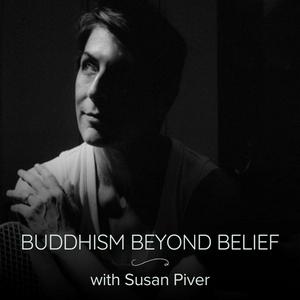
Descarga la app gratuita: radio.net
- Añadir radios y podcasts a favoritos
- Transmisión por Wi-Fi y Bluetooth
- Carplay & Android Auto compatible
- Muchas otras funciones de la app
Descarga la app gratuita: radio.net
- Añadir radios y podcasts a favoritos
- Transmisión por Wi-Fi y Bluetooth
- Carplay & Android Auto compatible
- Muchas otras funciones de la app


Buddhism Beyond Belief with Susan Piver
Escanea el código,
Descarga la app,
Escucha.
Descarga la app,
Escucha.



